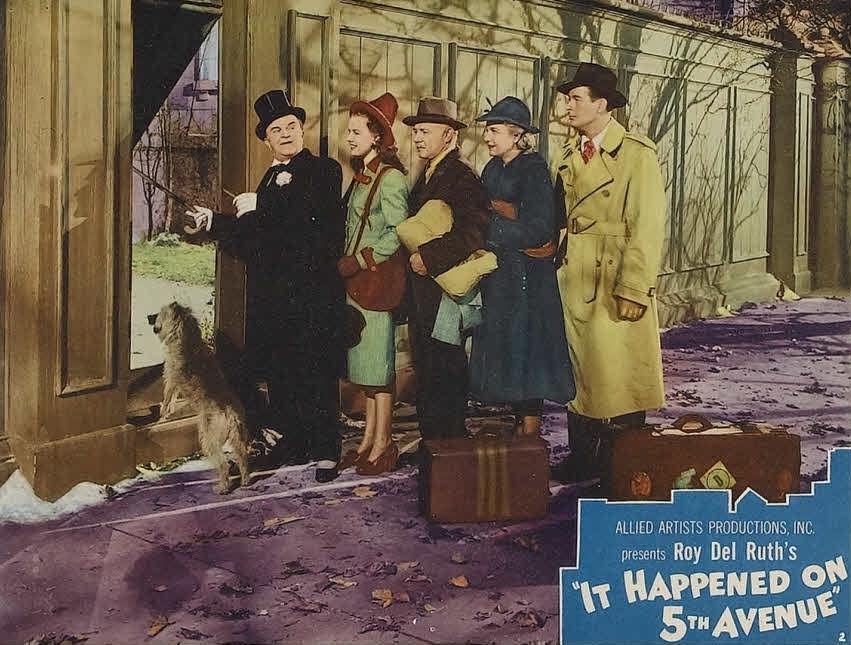Many of the classic Christmas movies still beloved today were released in the late 1940s. World War II was over, and in the new peacetime, people were glad to celebrate the peace on earth of Christmastime. Three movies released around the same time are “It’s a Wonderful Life” (1946), “Miracle on 34th Street” (1947), and “It Happened on 5th Avenue” (1947). All these films showed some aspect of post-war life, including the struggles as well as the joys.
Today’s moment of movie wisdom is from “It Happened on 5th Avenue.” This scene takes place 68 minutes into the 116-minute film. A carefree hobo, Aloysius T. McKeever (Victor Moore), who seems to have found the secret to enjoying life, talks with his friends about millionaire Michael J. O’Connor (Charlie Ruggles), who owns the mansion where they are staying. McKeever says that O’Connor never enjoyed meals at that table as they have because stress and grumpiness gave him a bad stomach. McKeever explains that, if you look at the world with a cheerful disposition, you can enjoy a hearty appetite for food and all the other pleasures of life.





